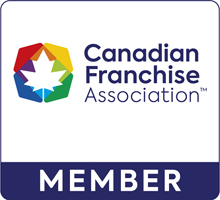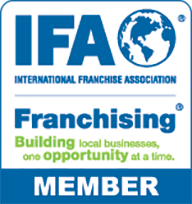A Look at Provincial Legislation for Protecting Franchisees: Alberta
Laws specifically regarding franchising in Canada are created and administered by the provinces. This means that some parts of the country have clear regulations regarding franchising while other parts of the country have no regulations at all.
Only six of the 10 provinces have legislation that pertains to franchising while none of the territories have any franchising legislation. The six provinces that have laws addressing franchising are:
- Alberta
- British Columbia
- Manitoba
- New Brunswick
- Ontario
- Prince Edward Island
That leaves Newfoundland & Labrador, Nova Scotia, Quebec, Saskatchewan, the Northwest Territories, Nunavut and Yukon Territory without any franchising legislation in place.
Even in provinces without franchising legislation and the territories, there are several federal and provincial laws that franchise businesses have to follow. Federal laws that apply to all businesses include income tax, packaging and labelling, competition, privacy and intellectual property.
Provincial laws that govern businesses regardless of whether they are franchises or not include; consumer protection, sales taxes, class action and liquor licensing. Businesses in Quebec must also comply with the Quebec Civil Code and the Charter of the French Language.
This month, we will look at a quick overview of the Alberta Franchises Act.
Alberta Franchises Act
The first province to enact franchising legislation, Alberta has had franchise-specific laws in place since the 1970s.
Under the province’s legislation, franchisors must provide a disclosure document to prospective franchisees no less than 14 days before the prospect signs any kind of franchising agreement or before any kind of fee is paid to the franchisor unless that fee is fully refundable.
The disclosure document must include:
- the franchisor’s financial statements,
- information about the franchisor,
- obligations of both parties,
- fees and initial investment levels,
- territorial considerations,
- the franchisor’s proximity policy,
- restrictions on products and supplies,
- rebates and discounts accruing to the franchisor, and
- a list of franchisees currently operating in Alberta.
The act gives franchisees a right of action for any damage or losses they suffer due to a misrepresentation in the disclosure document.
As part of the franchising act, the franchisor must provide details of earnings claims information they give to prospects. Earnings claims consist of information that allows a franchisee to reasonably ascertain potential sales, costs, income and profit from running the franchise.
The details of the earnings claims must include whether the claims are based on actual results of the franchise’s existing outlets, plus the percentage of outlets that meet or exceed the expected earnings. The information about earning potential must have a reasonable basis in reality and must also provide the place where franchisees can find information to substantiate these claims.
The franchisor must also state clearly whether the information being provided comes from a franchisor operated outlet and how exactly that information might differ from a franchisee operated outlet.
A franchisor cannot prevent a franchisee from forming an organization with other franchisees or from associating with other franchisees in any organization.
The act imposes a duty of fair dealing on both franchisors and franchisees. This duty obligates both parties to act in good faith and in accordance with reasonable commercial standards.
At least two officers or directors of the franchise must sign a certificate that states the disclosure document does not contain any untrue statements in regard to material fact and also does not omit any material facts.
If a franchisee suffers losses due to a misrepresentation in the disclosure document, the franchisee has a right of action to collect damages against the franchisor and the people who signed the disclosure document. If the franchisor fails to provide the disclosure document within the required timeframe of 14 days, the prospective franchisee may rescind the agreement by notice of cancellation given no later than 60 days after receiving the disclosure documents or no later than two years after being granted the franchise if no disclosure document is provided within that time.
Within 30 days of receiving the notice of cancellation, the franchisor must compensate the franchisee for any net losses the franchisee has incurred from acquiring, setting up or running the franchise.
Next month, we will look at British Columbia’s franchising legislation.
In the meantime, if you are looking for a franchise opportunity in Canada, sign up for a free FranNet franchise search and consultation today and let us help you find your perfect franchising match in any province.





